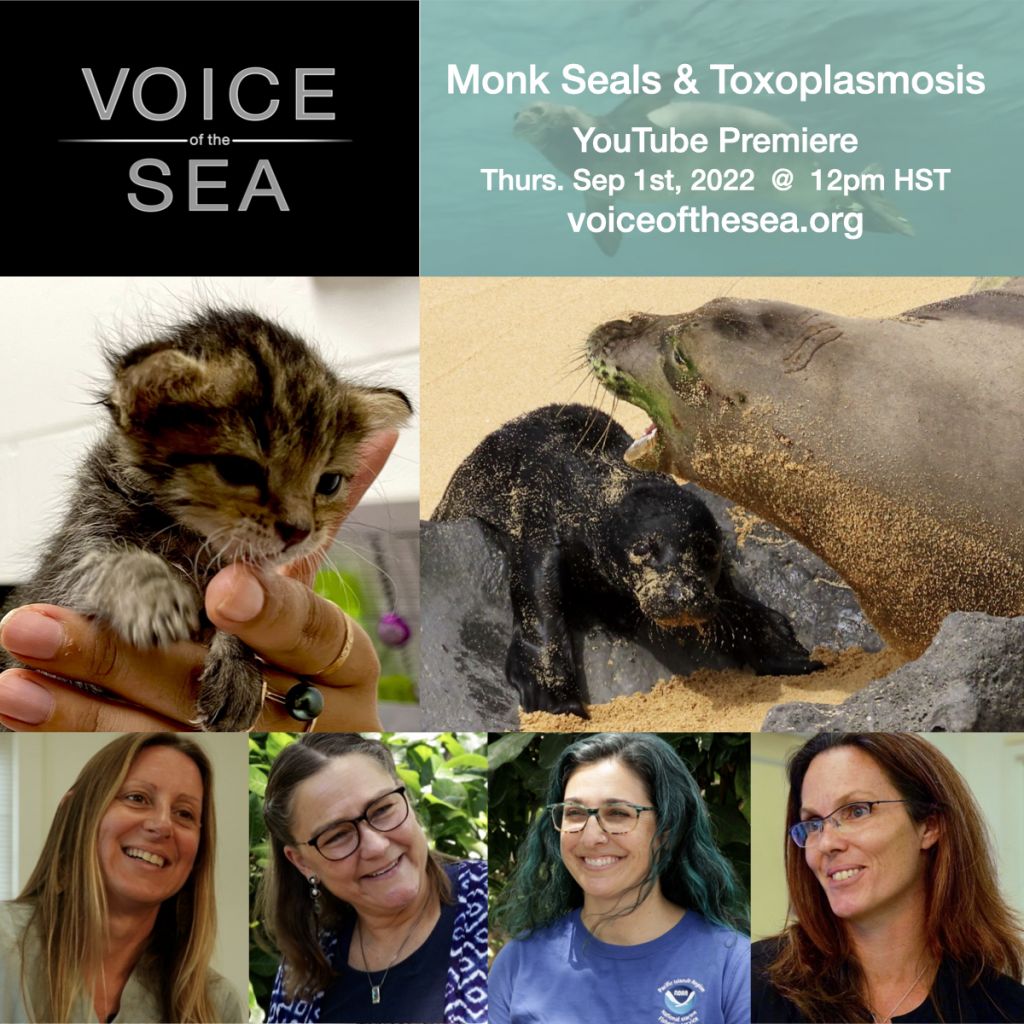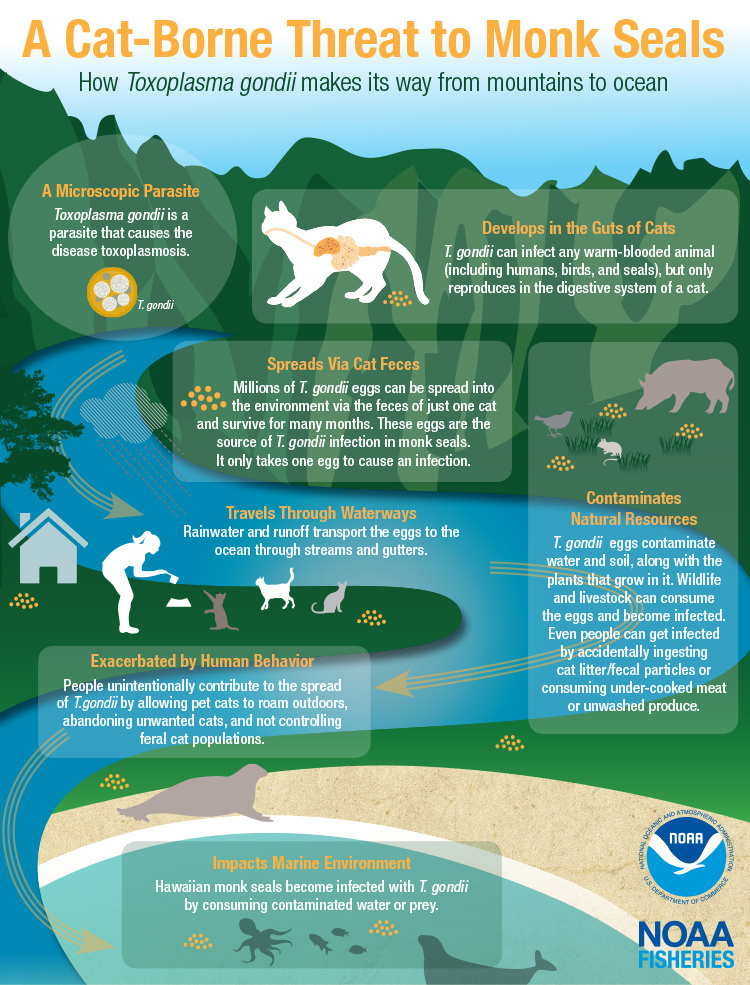Monk Seals and Toxoplasmosis
We’re looking at the connections between humans, cats, monk seals — and the disease toxoplasmosis. Monk seals have lived in Hawaiʻi for over three million years, but their population has been severely depleted by human influences and habitat loss. Death from toxoplasmosis—a disease caused by a parasite spread through cat feces—has added another challenge to the recovery of the Hawaiian monk seal population.
We talk to Michelle Barbieri and Stacie Robinson from the NOAA Hawaiian Monk Seal Research Program, Angela Amlin, Hawaiian Monk Seal Recovery Coordinator for the National Marine Fisheries Service, and Steph Kendrick, Director of Community Engagement for the Hawaiian Humane Society—all working together to help solve the problem of free-roaming cats in Hawaiʻi.
Watch the trailer for Season 9, Episode 5 on Vimeo, on YouTube, or on Vimeo with English Subtitles.
Watch the related episode Managing Cats & Saving Native Wildlife on Maui Season 9, Episode 5.
Full Episode
Curriculum Connections:

Hawaiian Monk Seals
- NOAA Fisheries: Hawaiian Monk Seal
- National Marine Sanctuaries Monk Seal Guide
- Kahea blog: Why Care about Monk Seals?
- Podcast: Pohaku Chronicles
- Centers for Disease Control and Prevention: Toxoplasmosis
- State of Hawaiʻi Department of Health: Toxoplasmosis
- March of Dimes: Toxoplasmosis and Pregnancy
- NOAA Fisheries: A Cat-Borne Threat to Monk Seals
- USGS National Wildlife Health Center: Toxoplasmosis in Hawaiʻi and the Pacific
- Invasive Species and Toxoplasmosis: A Case for Hawaii’s Native Wildlife
Marine Mammal Center
- Ages 8-11: Aloha ʻĀina
- Ages 10-14: Understanding Endangered
- Ages 10-14: Hawai‘i Virtual Tour ‘Ohana Challenge
Additional Resources:
- NOAA Pacific Islands Fisheries Science Center
- Website
- Hawaiian Monk Seal Research Program
- The Role of Diet as a Driver of Divergent Population Trends (between the main and Northwestern Hawaiian Islands)
- Report Hawaiian Monk Seal Sightings by contacting your local stranding network or send an email to pifsc.monksealsighting@noaa.gov
- Report a sick, injured, entangled, stranded, or dead animal to the Pacific Islands NOAA Marine Wildlife Hotline at (888) 256-9840
- Follow the Hawaiian Monk Seal Research Program on Facebook, Twitter @savingmonkseals, or Instagram @savingmonkseals
- Marine Mammal Center
- Website
- Monk Seal Conservation
- Volunteer
- 24-hour hotline: 415-289-SEAL (7325)
- Report a monk seal sighting on Maui or Hawaiʻi Island
- Follow the Marine Mammal Center on Facebook, Instagram @themarinemammalcenter, or Twitter @TMMC
- Hawaiian Humane Society
- Website
- Humane Society and Ward Research on Cats in Hawaiʻi
- Free-roaming cats
- Volunteer
- Follow Hawaiian Humane Society on Facebook, Instagram @hawaiianhumane or Twitter @hawaiianhumane
- Hawaiʻi Toxoplasmosis and At-Large Cat Technical Working Group
- Hawaiʻi Department of Land and Natural Resources (DLNR): Division of Aquatic Resources
- Invasive Predators: Cats DLNR information
How can you help?
You can help prevent toxoplasmosis from affecting monk seals and other wild animals by doing your part to reduce the spread of T. gondii eggs.
- Keeping cats exclusively indoors improves their longevity, protects native birds from cat predation, and is the best way to prevent the spread of toxoplasmosis.
- Make sure to spay and neuter your cats—while this won’t prevent them from contracting or spreading T. gondii parasites, it will curb unwanted litters of kittens.
- It is illegal in Hawai‘i to abandon unwanted cats or kittens outdoors or at feral cat colonies; take them to a shelter where they may be adopted.
- Please do not feed feral cats, as this may perpetuate colony growth and further abandonment, ultimately increasing the amount of T. gondii eggs spread into the environment.
Select a season of Voice of the Sea
Contact information:
Kanesa Seraphin, Ph.D.
kanesa@hawaii.edu
CONNECT




